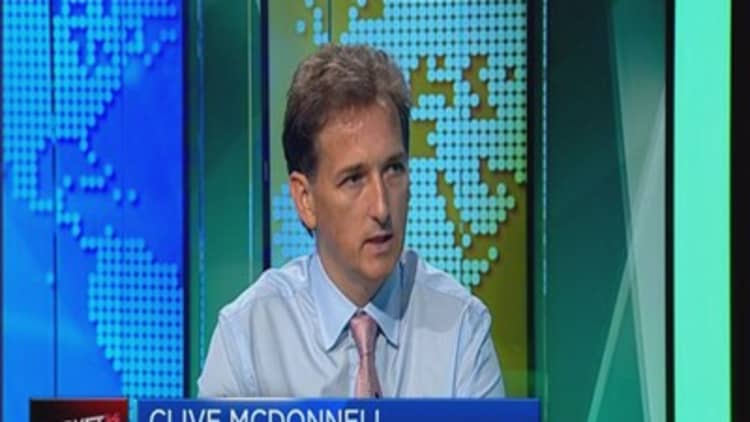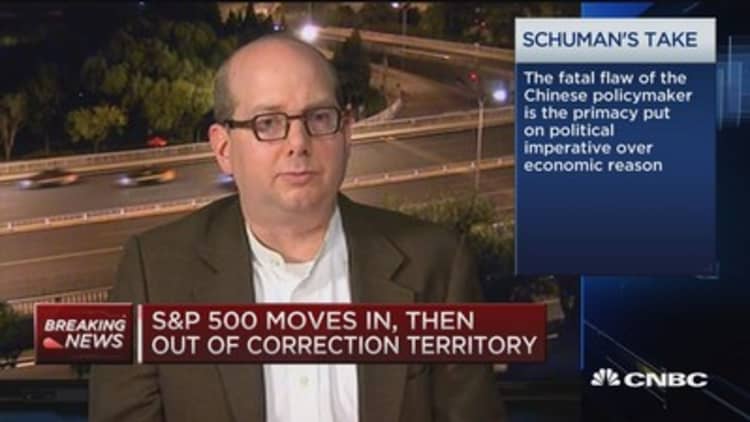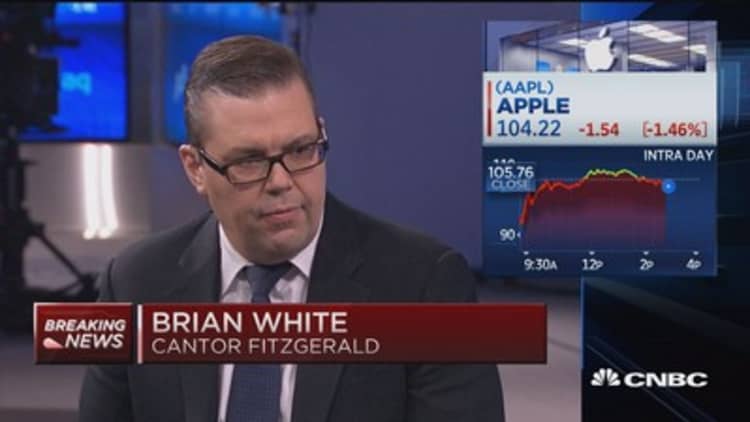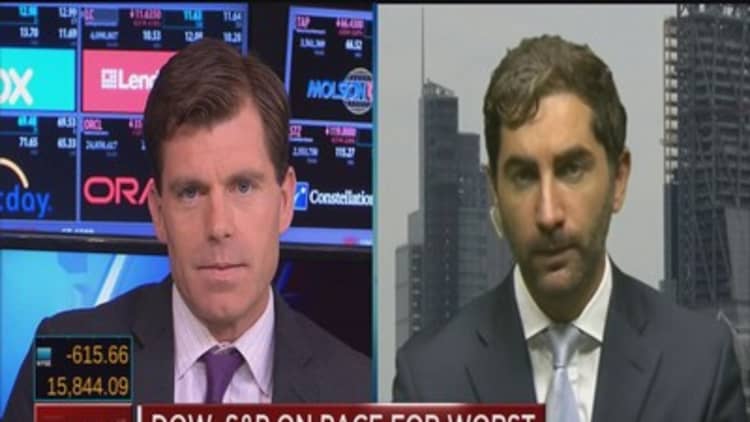



If China stabilizes, U.S. markets will breathe a sigh of relief.
"Because the U.S. is the only major economy that shows some major level of growth, if the contagion in Asia is somewhat limited it will not hurt the U.S. economy," said Dan Veru, chief investment officer at Palisade Capital Management. "I can't come up with a scenario where our dollar is not pointed to as a safe-haven currency."
He sees two potential supports for the market: A delayed rate hike by the Federal Reserve and significant stimulus from the Chinese authorities.
"Maybe they're putting something quite large in place. They have a lot of dry powder," Veru said. "If that happens then you'll see a substantial short-term rally."
U.S. stock index futures opened higher Monday evening after the major indices followed global markets lower but closed off session lows.
"When it is clear that the recessions aren't approaching, the market bounces back," David Kelly, chief global strategist at JPMorgan Funds, said in a note. "This should be the case this time, with very strong household and corporate balance sheets, a boost from low oil, plenty of pent-up demand for housing and capital equipment, improved government budgets and good momentum in the job market."
Read MoreTraders look to China to stop meltdown
He expects "a solid upward revision" for Thursday's revision on second-quarter GDP. U.S. GDP growth remains moderate, with the first read on second-quarter growth coming in at 2.3 percent.
Analysts estimate China is growing at a 4 to 6 percent annual rate (versus the headline 7 percent print), which they say is a necessary slowdown as the country transitions to a service-oriented economy from a manufacturing base.
"China has been growing too fast," said Francis Cheung, head of China-Hong Kong strategy at CLSA. "That's really been driven by a stimulus. We are at the beginning of this transition."
Nicholas Lardy of the Peterson Institute pointed out that the shift towards urban living and consumerism is helping grow jobs and incomes far more than the old Chinese industrial drivers.
"Thirty percent of household consumption was on services," he said. "That's what is driving the service sector and driving more rapid growth in non-agricultural employment."
However, the global fallout in stocks still hinges on China growth fears. The country's surprise move in mid-August to devalue the yuan triggered declines in emerging market currencies and exacerbated concerns of slowing growth in the world's second-largest economy. The U.S. dollar is up more than 5.5 percent year-to-date against the offshore yuan.
"China is important to everyone globally but they're really important in Asia. Obviously the dollar has been the beneficiary of this," said David Lafferty, chief market strategist at Natixis Global Asset Management, which has about $900 billion in assets under management.
Chinese leaders must acknowledge the economic slowdown in order to stabilize, many strategists said.
"If Beijing doesn't target much lower growth - on the order of a 100-150 basis-point decline of GDP growth every year through the rest of this decade - the only way to keep growth higher is to allow credit to continue growing at an unsustainable pace, which means risking a much more difficult and disruptive adjustment in three or four years as they reach debt capacity constraints," said Michael Pettis, professor of finance at Peking University.
China's stock market bubble - which had the Shanghai Composite wiping out gains for 2015 on Monday - should also be viewed as separate from the economy, analysts said.
The heavy-handed intervention by the Chinese Securities Regulatory Commission, viewed as a backward step by many, also contrasts with the more market-oriented steps by the People's Bank of China.
The central bank governor, Zhou Xiaochuan, plans to retire soon and is "trying to do as much as he can before he leaves," CLSA's Cheung noted.
Read More
The PBOC's move to devalue the yuan was likely an effort to make the currency more subject to market forces, analysts said.
"By undoing some of the fiscal tightening that was engineered and making monetary policy more flexible through RMB devaluation we view the latest policy move as a positive step in the right direction," said Jurgen Odenius, chief economist at Prudential Fixed Income.
Capital flows out of China and its stock market are indications of locals' pessimism. In the last three months, total outflows from mainland A-shares in the Shanghai and Shenzhen markets overwhelmed inflows at 2.6 trillion yuan ($405 billion), according to Wind Information.
In addition, as Chinese authorities move towards stated goals of opening up capital markets in the next five years, Cheung sees only one direction for Chinese assets: Out.
"Buy property where Chinese want to buy," he said, citing markets such as New York and Los Angeles. That and tourism are "two of the most dependable trends."
The PHLX Housing Sector index (HGX) tracks stocks such as Vulcan Materials and Lennar and is up 4.6 percent year-to-date, compared with an 8 percent loss for the S&P 500.
Correction: This story has been updated to reflect that the capital outflows were from the mainland Chinese stock market, not the capital account.


